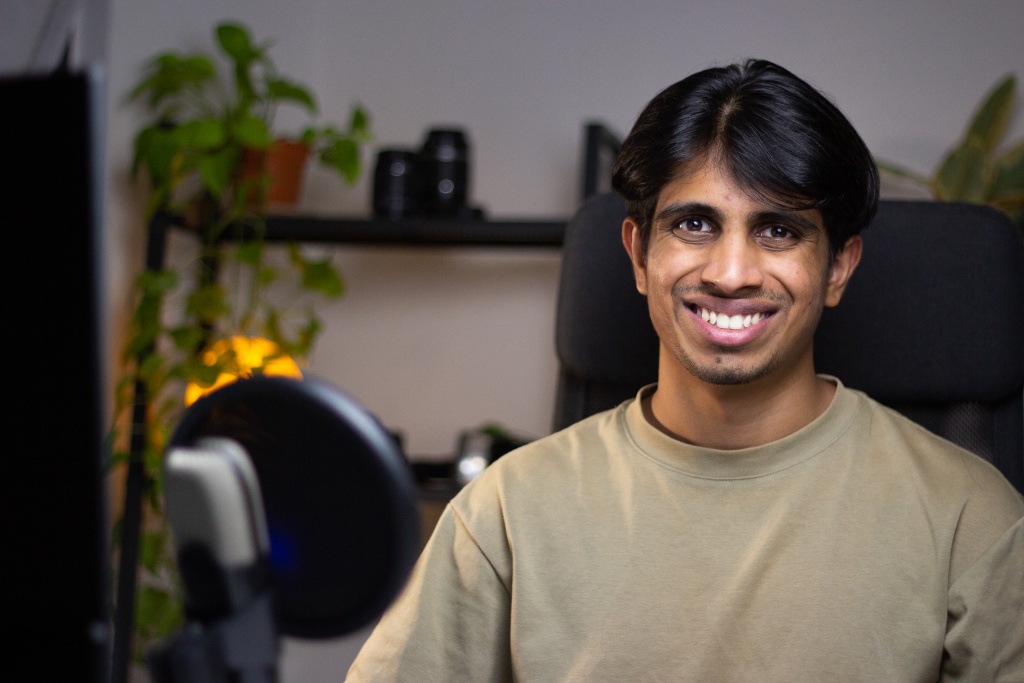
Ask any fresh graduate and a good number will tell you just how hard it is to apply for jobs. Every company seems to require two or more years of experience for entry-level positions — most fresh graduates only have months, if any, of work experience.
It doesn’t help that as fear about a recession grows, companies are returning to their old habits of placing candidates through a gruelling process — which further dampens the chances of anyone looking for the highest paying jobs with no experience.
Companies are taking their time to hire new employees. The amount of time it takes to find a new hire peaked at an all-time high of 44 days in early 2023, according to a report released this month by the Josh Bersin Company and AMS, a workforce solutions firm.
“Make no mistake, the hiring market is not going to get easier any time soon,” said Jim Sykes, global managing director of client operations at AMS, in a statement.
In the US, employers only planned to hire 3.9% more college graduates in 2023 than they did in 2022, according to the National Association of Colleges and Employers spring job outlook.
That’s down sharply from a projection of a 14.7% hiring increase when employers were surveyed in the fall.
Does this mean all fresh graduates should just settle to work in fast food restaurants? Or give up applying to jobs and justgo back to university to get a master’s degree?
The answer is more complex than a yes or no. And it starts by truly understanding the role of experience in applying for entry-level positions.
The highest paying jobs with no experience exist, but there’s a catch
Your work experience depends on the amount of practical knowledge you gain over time through working in a job.
With experience, you learn how to perform more complex tasks — opening more avenues for you to contribute towards a company, thereby giving you more leverage to demand a higher salary.
Companies prefer those with a degree and experience for many reasons. They don’t have to train them too long and can get them helping out ASAP.
Much of navigating the workplace also depends on soft skills, such as communication, team work and creative problem-solving. The more you practise with these, the easier it is for you to fit into a team’s culture.
While it may seem impossible to get work experience, there are alternatives you can try when you’ve received your 100th rejection.
You can get the necessary experience in many ways — some go beyond working for a company. For example, you could:
- Volunteer: You could volunteer for a non-profit, charity, or even a startup. Volunteering is a great way to improve your existing skills and develop new ones without sacrificing too much time from your studies.
- Complete co-op placement programmes: Co-op placement programmes allow students to earn course credits while gaining valuable work experience related to their area of study. Like internships, these placements can last for months or an entire year.
- Shadow someone at a job: Reach out to someone within your network who works in a role you’re interested in and see if you can shadow them for a day.
- Join hackathons: Hackathons are common in the tech industry, where companies partner with post-secondary schools to host a day-long competitive event. It allows participants to collaborate with other like-minded peers on a project assigned by the host company.
- Start your own business: A great way to showcase your capabilities in areas such as sales, marketing, and finance.
The catch with these alternatives is many, if not all, will not pay you the salary of a full-time employee even though you’ll most likely be performing the same tasks as one.
They’re also not as impactful in the eyes of recruiters compared to traditional work experience.
If this doesn’t work, there’s another option available: focusing and getting the highest paying jobs with no experience required.

Ashvin Praveen and Lizzie Tan co-founded Whacked, a content-driven social media agency when Praveen was studying a bachelor’s degree in mechanical engineering at the University of Sheffield. Source: Ashvin Praveen
5 graduates, 5 highest paying jobs that require no experience
1. Entrepreneur (Ashvin Praveen)
An entrepreneur is an individual who identifies business opportunities, takes calculated risks, and organises resources to create, develop, and manage a successful venture, often with innovation and determination.
To become an entrepreneur, one doesn’t need a specific degree to succeed.
Take Ashvin Praveen, for example. He graduated with a bachelor’s degree in mechanical engineering but ventured into marketing and content creation during his university years at the University of Sheffield.
During his second summer break, Praveen co-founded Whacked, a content-driven social media agency.
What started as a freelancing gig with his business partner has snowballed into a team of seven helping business leaders (mostly finance clients) connect with their audience on LinkedIn through relatable content.
Praveen’s interest in marketing was sparked by his involvement in iCUBE, a student-led organisation promoting entrepreneurship and innovation. This exposure to a startup mindset demonstrated the potential for a small group of students to make a significant impact.
“Before uni, I had zero understanding of business and entrepreneurship. I didn’t even know this space existed,” Praveen says.
His transition from engineering to the dynamic marketing field as an entrepreneur proves that the highest-paying jobs can often come from unexpected paths, even without prior experience.
There’s no cap on earnings for entrepreneurs — the sky’s the limit.

Shreya Pattar pursued her Bachelor of Art in English Literature and Philosophy at Trinity College Dublin. Today, she is a content creation agency owner, writer and author. Source: Shreya Pattar
2. Agency owner (Shreya Pattar)
An agency owner is someone who establishes and manages a company that provides various services, such as advertising, marketing, or consulting, to clients or customers in a specific industry.
Building a career as an agency owner is a demanding journey, requiring years to develop a unique style that resonates with your audience. For one particular Indian student in Dublin, she was able to build her freelancing business, thanks to a viral post.
Shreya Pattar found her breakthrough when a post about her encounter with Jeff Weiner, former LinkedIn CEO, went viral — that post garnered 1.5 million views, 14,700 reactions and 465 comments.
The best part? Weiner remembered that conversation and commented on Pattar’s post.
This set her on a path to becoming a successful entrepreneur and author of seven ebooks on freelancing, content creation, and building an audience on LinkedIn.
Balancing her studies and work was challenging, but her dedication paid off. She managed to cover her rent and tuition fees, totalling around 40,000 euros while maintaining an impressive work routine.
“One good thing about freelancing is that you can do it while still in college. It’s not only a great way to pay your bills but an opportunity to build your network, see your net worth and be confident in what you do,” she explains.
Today, Shreya is not just a writer but also an agency owner of Shreya Pattar Ventures.
As an agency owner, one can expect to earn anywhere between US$63,727 to US$238,854 per year.

One of the first jobs that Saraswat had as an international student was working as a pizza server. Source: Ritika Saraswat/LinkedIn
3. Business analyst (Ritika Saraswat)
A business analyst is a professional who assesses and analyses an organisation’s operations, processes, and data to identify opportunities for improvement and efficiency, ultimately helping businesses make informed decisions and achieve their objectives.
Take Ritika Saraswat, a 21-year-old Indian native in Vancouver, as an example.
Saraswat has carved an unconventional path to success, challenging the traditional notion that high-paying jobs require extensive experience.
Rather than pursuing the typical Asian careers of doctor, engineer, or lawyer, Saraswat distributed menstrual care packages, collaborated with Guru Nanak’s Free Kitchen, mentored international students, and worked two part-time jobs.
A kinesiology major at the University of British Columbia, she discovered her passion for marketing and consulting through case competitions.
“I was excited about the problem-solving aspect of marketing. Eventually, I pivoted into consulting and got more involved in consulting-related opportunities,” Saraswat says.
Gaining experience in the non-profit sector proved invaluable for her.
“I worked with Medical Herstory, a non-profit dedicated to raising gender health inequity, as a Social Media Marketing Intern before landing my role as a Social Media Manager at My Restful Mind,” Saraswat says.
Once she had acquired enough experience, she ventured into social startups, such as Health Conscious and Elemeno, and became a freelance consultant.
Saraswat’s determination led to a Human Capital Business Analyst role at Deloitte, a position diverging from her degree. She also founded the non-profit “Re-Defined,” which empowers international students and marginalised communities in Canada.
Salary range for a business analyst ranges from US$56,010 to US$128,130 per year.

Daniel Woodroof is an Alice Smith School graduate and the co-founder of Pandan Social, a full-service digital marketing agency consisting of strategists, creatives, and analysts. Source: Daniel Woodroof/LinkedIn
4. Co-founder (Daniel Woodroof)
A co-founder is a person who initiates and plays a significant role in establishing and developing a business or project alongside others — as exemplified by Daniel Woodroof,
A graduate of the Alice Smith School in Kuala Lumpur, Malaysia, Woodroof did not pursue a university education but found success in professional go-kart racing.
He discovered his passion for karting during a family outing and, with the school’s support, managed to balance his racing career and education.
Woodroof’s achievements include winning the Malaysian Karting Championship (Junior) in 2011, representing Malaysia in the Rotax Max Challenge World Finals (Junior) in 2012, and securing victory in Formula BMW Asia in 2013 and 2014.
Despite a hiatus in his racing career due to financial constraints, Woodroof ventured into hosting and digital marketing, leading to the founding of Pandan Social, a digital marketing agency, and Pandan Influencer, focusing on student influencer marketing.
After months of hard work, Pandan Social has been acquired by Ruder Finn, a global PR powerhouse based in New York.
“It’s been years of the clichéd blood, sweat, and tears, but it’s worth every drop. We are now part of a global PR powerhouse headquartered in New York, and I can’t wait to see what impact our humble Malaysian-based team makes in Asia-Pacific,” Woodroof says.

After completing her Bar Professional Training Course, Ling Yah returned home to start her legal career in Malaysia. On the side, she created her podcast, “So This Is My Why” to inspire others about their why and how to turn them into realities. Source: Ling Yah
5. Content creator (Wong Ling Yah)
A podcaster is a content creator who produces and distributes audio or video episodes, typically in a series, through online platforms known as podcasts.
One notable example is Wong Ling Yah, who went from a law graduate to a successful podcaster.
Originally hailing from Kuching, Malaysia, Wong attended the London School of Economics and Political Science to study law.
After a stint as a lawyer at Baker McKenzie, Wong felt the need to break free from the confines of her legal career and explore her broader interests.
“Somewhere along the way, I just decided to start my own podcast,” Wong says.
Her podcast, “So This Is My Why,” soon became an international sensation, ranking #2 in Malaysia and Singapore and #3 in Indonesia.
Through her podcast, she’s had the chance to engage with fascinating individuals, from wildlife conservationists to TV executives.
Looking ahead, Wong aims to make her podcast even more interactive and plans to involve live audiences.
That’s not all. Apart from the podcast, Wong is also running two newsletters and a YouTube channel.
She advises students to rethink their concept of passion.
“Based on my interviews, many people who were ‘successful’ didn’t pursue their passion. They filled up their curiosity,” she shares. “Be open to the possibility of serendipity (that refers to an unplanned fortunate discovery).”
Wong’s journey exemplifies how an open mind and willingness to explore the unknown can lead to unexpected and fulfilling career paths.
Salary range for a podcaster usually ranges from US$52,000 to US$88,000 per year.










